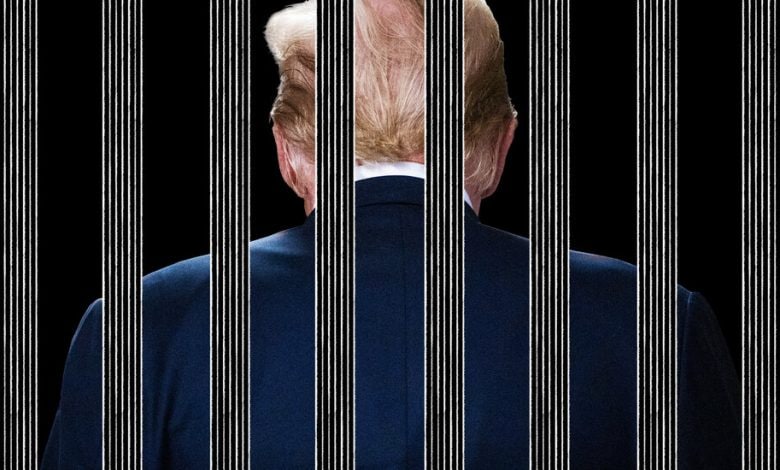Donald Trump, Felon

In a humble courtroom in Lower Manhattan on Thursday, a former president and current Republican standard-bearer was convicted of 34 felony counts of falsifying business records. The jury’s decision, and the facts presented at the trial, offer yet another reminder — perhaps the starkest to date — of the many reasons Donald Trump is unfit for office.
The guilty verdict in the former president’s hush-money case was reached by a unanimous jury of 12 randomly selected New Yorkers, who found that Mr. Trump, the presumptive Republican nominee for president, was guilty of falsifying business records to prevent voters from learning about a sexual encounter that he believed would have been politically damaging.
Americans may wonder about the significance of this moment. The Constitution does not prohibit those with a criminal conviction from being elected or serving as commander in chief, even if they are behind bars. The nation’s founders left that decision in the hands of voters. Many experts have also expressed skepticism about the significance of this case and its legal underpinnings, which employed an unusual legal theory to seek a felony charge for what is more commonly a misdemeanor, and Mr. Trump will undoubtedly seek an appeal.
Yet the greatest good to come out of this sordid case is the proof that the rule of law binds everyone, even former presidents. Under extraordinary circumstances, the trial was conducted much like any other criminal trial in the city. That 12 Americans could sit in judgment of the former and potentially future president is a remarkable display of the democratic principles that Americans prize at work.
Justice Juan Merchan, the jury and the New York legal system delivered speedy justice, providing Americans with vital information about a presidential candidate before voting begins. Multiple polls have shown that a conviction will affect the decision of many voters.
The verdict itself establishes that Mr. Trump committed crimes in hiding pertinent information about himself from the American people for the purpose of influencing the 2016 presidential election. It revealed even more evidence of what Mr. Trump is willing to do, including breaking the law and pushing others to break the law, for political gain. That chronic impulse — to override democratic norms and the law to his own ends — is at the heart of two other criminal cases against Mr. Trump, for the much more serious charges of spreading lies and participating in a criminal conspiracy to overturn the 2020 election. (He is also charged with mishandling highly classified national security documents after leaving office; twice, he showed classified documents to people who were not authorized to see them, according to the indictment.) Mr. Trump’s lawyers have managed to delay those three trials.
